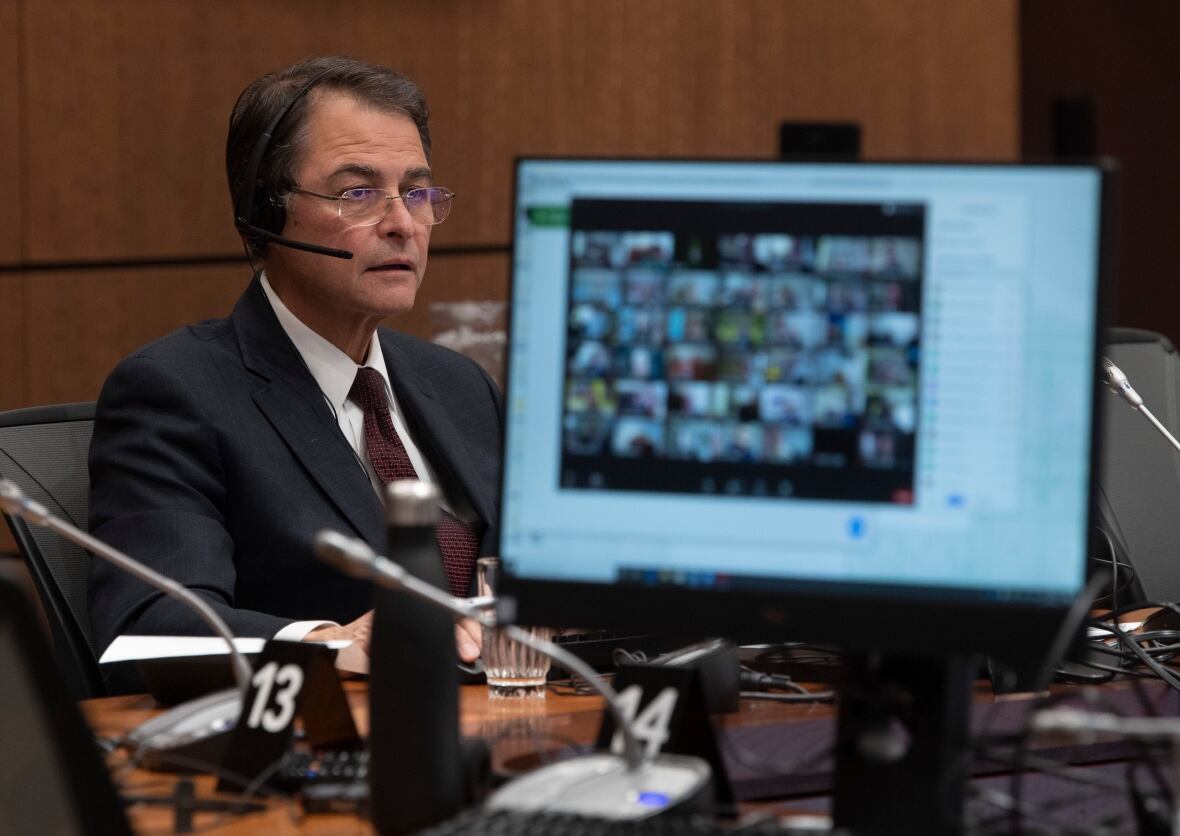The House of Commons vaccine rule puts O'Toole in an awkward spot
The Conservative leader might prefer to let the Board of Internal Economy take the heat on this one
The House of Commons is a workplace unlike any other. But the sandstone walls of Parliament are not immune to the reality of a global pandemic.
So sooner or later, the House was going to face the same questions now confronting every other institution and establishment in the country: whether to require that its occupants be vaccinated and what the consequences of such a requirement might be.
But because this is the House of Commons, the vaccine mandate has become a test of political leadership — particularly for Conservative Leader Erin O'Toole.
The House's Board of Internal Economy — an all-party steering committee chaired by the Speaker — brought matters to a head this week with its decision to bar anyone associated with the House from entering the parliamentary precinct unless they are vaccinated — including MPs.
There is some debate over whether the board has the authority to issue such an edict on its own, but questions about process are unlikely to change the ultimate result. With the Liberals, Bloc Quebecois, NDP and Greens all in favour of a vaccine mandate, a similar order is sure to pass a vote of the whole House.
Collective vs. individual privilege
It might seem problematic to tell any member of the House they can't take their seat in the chamber and such actions should be exceedingly rare. But Steven Chaplin, a former counsel in the office of the law clerk of the House of Commons, said in a blog post last week that "the privilege relating to attendance belongs to the House not to the individual Member."
"Parliamentary privileges have as their purpose the protection of each House of Parliament so that it can carry out its business without threat from outside the House," Chaplin wrote. "It is for the House to exercise its privileges how it deems best for itself and its Members collectively."
Being elected to the House of Commons is a special honour and responsibility. But each chamber of Parliament is in control of its own internal affairs and membership, with the power to suspend or even expel a member (the power to expel has been used on only four occasions, mostly recently in 1947).
An unvaccinated MP might argue that being banned from the House is unfair to them or their constituents. Every other MP could reasonably argue that the presence of an unvaccinated member threatens their health and safety.
"Where the actions of a Member threaten the whole with the potential of denying it the ability to carry out their constitutional functions, the whole has the responsibility to protect itself and [its] constitutional role," Chaplin wrote.
How opposed are Conservatives to the vaccine rule?
A vaccine mandate for the House of Commons would be less controversial if there was unanimous support among MPs for imposing such a requirement. Instead, like almost everything else that happens in the House, the debate is breaking along party lines — in this case with the Conservatives standing against.
The extent of that Conservative opposition is hard to measure.
Unlike the leaders of the other major parties, O'Toole did not demand that Conservative candidates be vaccinated during this fall's election campaign. The party has not been forthcoming when asked to confirm how many of its MPs have been vaccinated.

After the Board of Internal Economy rendered its decision, Conservative MP Blake Richards — a member of that committee — released a statement saying that "we cannot agree to seven MPs, meeting in secret, deciding which of the 338 MPs, just elected by Canadians, can enter the House of Commons to represent their constituents."
Later, in an interview with TVO's The Agenda, O'Toole said his party would "respect" that decision.
But then on Friday, a spokesperson for O'Toole said Conservatives don't believe the Board has the authority to enforce a ban and that such a move would "infringe on a member's right to take their seat in the House of Commons."
Speaking to The Agenda, O'Toole harkened back to his broader position on vaccine mandates in general — that it's wrong to divide people and better to avoid confrontation by finding compromises. During this fall's campaign, O'Toole argued that rapid tests could cover those public servants or travellers who refuse to be vaccinated.
WATCH: Erin O'Toole is questioned about partially-vaccinated candidate campaigning in seniors' home
Opinions differ over whether that's an acceptable compromise — rapid tests won't detect all infections — but Conservatives are resisting one option that might allow unvaccinated MPs to take part in parliamentary proceedings.
During the last Parliament, MPs adopted rules for "hybrid" sittings in which some members participated remotely via video. Allowing unvaccinated MPs to participate virtually might be a reasonable compromise now.
But the Conservative Party wasn't keen on the hybrid arrangement before the election and is now insisting that Parliament return to its "normal function."

Maybe the Conservatives have such deep misgivings about "virtual" democracy that they consider compromise impossible on this point. Maybe O'Toole doesn't like the idea of some number of unvaccinated Conservative MPs appearing via video feed. Maybe he wouldn't be unhappy if it was the Board of Internal Economy — and not him — forcing all Conservative MPs to get vaccinated.
O'Toole surely knows that if some number of Conservative MPs don't show up with proof of vaccination or valid medical exemptions when Parliament returns on November 22, he's the one who will end up having to answer for it.
And given the shared expectations around vaccination that are covering more and more of Canadian society — from hospitals to restaurants to sporting events — most voters aren't likely to blame the Board of Internal Economy or the House of Commons if an unvaccinated MP is unable to take his or her seat next month.



